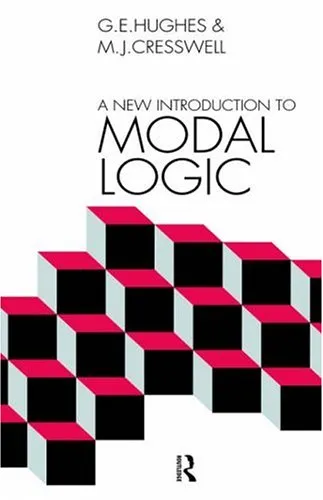Steps to an Ecology of Mind: Collected Essays in Anthropology, Psychiatry, Evolution, and Epistemology
4.5
Reviews from our users

You Can Ask your questions from this book's AI after Login
Each download or ask from book AI costs 2 points. To earn more free points, please visit the Points Guide Page and complete some valuable actions.Related Refrences:
Introduction to "Steps to an Ecology of Mind"
Welcome to a profound journey through the intricate and interconnected systems of thought presented in "Steps to an Ecology of Mind: Collected Essays in Anthropology, Psychiatry, Evolution, and Epistemology" by Gregory Bateson. This collection of essays invites readers to explore the complex relationships between mind and nature, blending disciplines to understand deeper patterns of communication and learning.
Detailed Summary of the Book
In "Steps to an Ecology of Mind," Bateson stitches together a series of essays that challenge the conventional ways of understanding the interaction between mind and environment. The book is a confluence of ideas from anthropology, psychiatry, evolution, and epistemology. Bateson uses these essays to dismantle traditional boundaries in these fields, providing readers with a vision of a world where mental processes are not restricted to individual brains but are seen as part of a larger ecological system.
The essays are organized thematically, beginning with insights into the nature of communication in "Form and Pathology in Relationship." Bateson explores how mind and context interact, focusing on how human relationships can generate or disrupt mental illness. Throughout the book, he investigates the dynamics of learning, offering insights into how organisms, from amoebas to humans, adapt to their environments through semiotic exchanges and adaptive behaviors.
One of the central themes of Bateson's work is the concept of the "double bind," a communication dilemma where individuals receive contradictory messages, impeding proper responses and potentially leading to psychological distress. The book delves into the significance of patterns, feedback loops, and the interconnectedness of natural systems, advocating for a holistic understanding of human and non-human interactions.
Key Takeaways
- The interconnectedness of mental and ecological systems is paramount to understanding behavior and consciousness.
- Bateson introduces the concept of the "double bind," which remains influential in understanding communication and psychological challenges.
- Insight into ecological and cybernetic thinking helps redefine the boundaries between disciplines and encourages interdisciplinary approaches.
- The book emphasizes non-linear thinking and understanding systems through patterns, habits, and feedback loops.
- Education should involve learning how to learn, and adapt to changing environments and contexts.
Famous Quotes from the Book
"What patterns connect the crab to the lobster and the orchid to the primrose and all four of them to me? And me to you?"
"The major problems in the world are the result of the difference between how nature works and the way people think."
"Information is a difference that makes a difference."
Why This Book Matters
"Steps to an Ecology of Mind" is not merely a collection of essays; it is a transformative work that has left a significant imprint on various disciplines, particularly in the realms of psychology, ecology, and systems theory. Bateson's insights into the interconnectedness of living systems have profound implications for how we approach challenges in an increasingly complex world.
The book encourages readers to move beyond reductionist thinking, urging them to consider the broader contexts in which behaviors and phenomena occur. By understanding the ecological relationships and feedback loops that characterize both natural and human-made systems, Bateson provides a framework that is as applicable to environmental issues as it is to social and personal ones.
Ultimately, Bateson's work cultivates an appreciation for complexity and systemic thinking. It underscores the need for new modes of reasoning in addressing 21st-century issues, making it an essential read for those seeking to grasp the intricacies of mind, culture, and nature in tandem.
Free Direct Download
You Can Download this book after Login
Accessing books through legal platforms and public libraries not only supports the rights of authors and publishers but also contributes to the sustainability of reading culture. Before downloading, please take a moment to consider these options.
Find this book on other platforms:
WorldCat helps you find books in libraries worldwide.
See ratings, reviews, and discussions on Goodreads.
Find and buy rare or used books on AbeBooks.
Questions about Book
1586
بازدید4.5
امتیاز0
نظر98%
رضایتReviews:
4.5
Based on 0 users review
Questions & Answers
Ask questions about this book or help others by answering
No questions yet. Be the first to ask!












